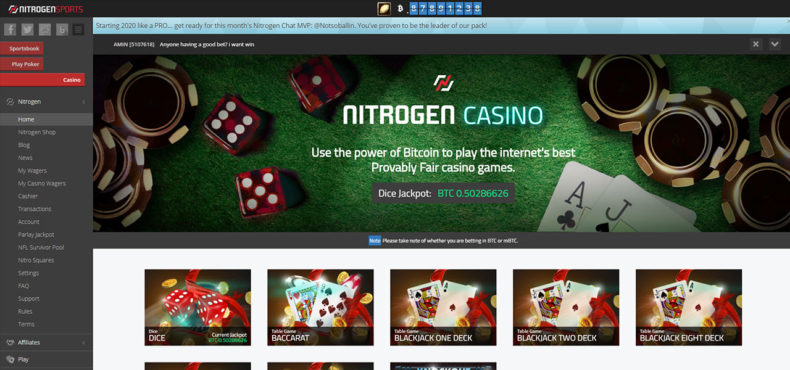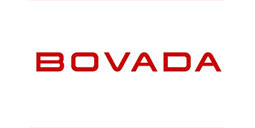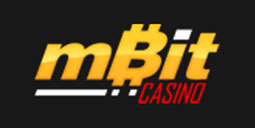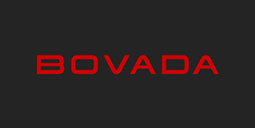SEC Assembly Line?
If rules came along, would the SEC grandfather in projects operating before these rules were formalized?
PIPES is an acronym for private investment in public auctions, and it had been a means for hedge funds and other shareholders to spend generally in small publicly traded firms through a private offering. It’s still around.
CoinDesk: At what stage will the SEC and the others weigh in more officially on ICOs?
On Your “assembly line” mention — in which exactly the SEC assesses tokens and takes a little into evaluation to a rolling basis — how this could work?
The enforcement people saw this happening. They didn’t enjoy it; they believed it had been a violation of law. And these subpoenas were shipped by them out by the dozens.
The plaintiffs and their lawyers have alleged that [Tezo’s ICO] entails a safety. I have a sense the very first line of protection by the defendants will be, “This isn’t a safety. These particular laws don’t apply.” But it has not been mastered by any judge.
The use of profits has to be accurate. So that’s step one.
But it’s the economic reality, not the tag, that’s the most crucial matter.
Then there is: How will your sales and attempts selling ICOs or Assets be judged in hindsight? The use of profits is just about the largest representation to investors that are going to be scrutinized by regulators or private plaintiffs after the truth.
We don’t possess judicial rulings with this, and we will not have them for likely a long time.
And then the absolute most effective way the SEC speaks is by bringing lawsuits. We are likely to see a lot of these.
The economic reality matters far more than the tag. Tezos may be the test instance on that, because they tried to call it a “donation.”
“You may be right that your ICO isn’t a safety, and a few judge, in the close of the day, may concur with you, but is it worth the expense and distraction to find that response in a quote?” He told CoinDesk
So that’s why we may see the so-called law by litigation happen more immediately.
How ICO Enforcement Can Take Shape
You are able to tell what the SEC’s believing only because they allege it into a complaint they record in federal court or deliver in an administrative proceedings. That is going to happen, although that’s a tough way to regulate, by lawsuit.
So, you see it a number of different ways. You see it. That is called a 21(a) report, because the report is issued under a particular section of the law.
Those things will probably be scrutinized.
Will all of the fumbling with language, such as businesses using “token” versus “coin” in their own marketing, be effective?
This interview has been edited and condensed.
What I’m expecting disagreeing with is that I think the enforcement division is going to bring some cases where they simply assume it is a security, but in which the defense could have a legitimate argument that it isn’t a security.
In reaction, the industry has moved into a different direction. Some, for example Overstock subsidiary tZERO, are deciding to have regulated, while some have moved to create utility to their tokens, thus establishing it as a resource.
What’s the SEC performing, on your head, investigating and regulating the industry? Does anything about the way regulation is going to be put down pressure you?
What does a startup need to do if it wants to proceed like its token is a safety, then?
But the SEC latched on to some particular model, in which the hedge funds would occasionally short the organization’s stock concurrently with purchasing in the PIPE.
Speaking in the ICO Forward Summit in New York City spoke to CoinDesk on what to watch for in the next several years in relation to SEC enforcement.
Meeting line image via Shutterstock
Disclaimer: This report shouldn’t be taken as, and isn’t intended to supply, investment information. Before investing in any cryptocurrency please conduct your own thorough investigation.
They should put out pronouncements about tokens that are a closer call. And they’ll. They will arrive. It will be in the form of No Action letters and rule-making.
I don’t disagree with the SEC’s strategy.
But It doesn’t even necessarily need to be at trial; a trial happens at the conclusion of a legal proceedings. For example, from the Zaslavskiy case — the diamonds and property ICO in Brooklyn, New York — the SEC had to go into court, they registered a complaint, they [efficiently] stated “this token is a safety.”
Then they obtained a preliminary ruling from the judge in that case that signaled that it likely was a safety. That is as close as we have gotten into a judgment.
Step two: If you’re likely to correct the qualifications of your board of advisers, be sure they actually are advisers and have agreed to be listed as such. And make sure when you’re describing your management or your advisers, that the descriptions are not exaggerated.
If you’re moving on the assumption that you have a safety and you need to have an ICO, then the first issue is to choose whether you’re likely to provide the tokens to a documented basis or pursuant to an exemption to registration. That is probably the issue that has to be confronted.
Morgan: You are not likely to have a satisfactory response that [your token is] not a safety until the conclusion of the SEC investigation process, in lawsuit, when you may get a judge that agrees with you that your ICO isn’t a safety.
Though the SEC has issued advice to the ICO industry, recently setting out why it categorized tokens issued by The American DAO (a now-defunct ethereum intelligent contract that sold its token to shareholders) as securities, the agency has yet to announce formal rules.
We see that an ICO, it fairly clearly falls into the realm of a safety, they also put out a white paper, they didn’t possess a registration statement, they didn’t fit into an exemption to the registration requirements. Let’s send a subpoena out.
Take care how you characterize what you do operationally.
“It’s likely a better course of action if you’re anywhere close to being a safety, to only assume that it is and proceed with that presumption in mind.”

The Securities and Exchange Commission could be gearing up to drop key activities on Associates of initial coin offerings (ICOs).
But based on Morgan, and others in the industry, the ever-expanding language and group of techniques and terms the sector uses could introduce entrepreneurs into some time-consuming SEC investigation and lawsuit.
Do you think the SEC will develop much more formal advice shortly?
Another way the SEC conveys is via speeches, public remarks. We are also likely to visit No Action letters, so it is possible to go and essentially ask a very specific question: “If we do so, will you consent not to recommend that an action be brought against us?”
The SEC made a model where they watched the exact same fact pattern over and above, in which they would send out an subpoenas, check to see that fact pattern originated and then very quickly attracted a lawsuit against businesses. And I could see that happening here.
The DAO has been a fairly obvious call up to if it had been a safety or not. It doesn’t go far enough, although I think that was great the SEC did that.
According to Nicolas Morgan, a former lawyer for the U.S. government agency tasked with regulating the securities sector, the SEC is very likely to roll out some type of “assembly line” of enforcement activities from the nascent sector in the next several years.
You can find those from the ICO area who’d like the SEC promulgate a few regulations. I think that’s very likely to occur. They have got plenty on their plate that has nothing along with the process is a slow process.
Models which may be a great analogy … one has been a particular version in the PIPES market.
The chief in blockchain information, CoinDesk is a different media outlet that strives for the highest journalistic standards and abides by a strict series of qualitative policies. Interested in offering your expertise or insights ? Get in touch with us in news@coindesk.com.
Another issue is how you’re describing what it is you’re likely to perform. Maybe not in terms of how the cash is going to be invested, but, “We’ve got certain milestones. We are going to launch this stage by January.” But no launch has occurred, and January comes and goes and if you state that, that could possibly be an issue.
Or take the Tezos class action, as an instance: private lawsuit, filed in San Francisco condition court. Perhaps not the SEC.
So we will not get the evolution of the law that we ought to. There will not be because there’ll be about if it’s the security exists, the nuanced thinking.
No. I don’t think that they would.
I dread that the SEC will, in an effort to really earn a point, bring cases where the presence of a safety does not receive the thought that it really deserves, because there’ll be other bad aspects in these scenarios. Fraud, theft of cash, whatever it is.
And should the fact patterns recur over and above, it makes it fairly easy for the SEC, that’s why I described it as an assembly line. Something which’s not automatic, but it is easily replicated on their own side.
SEC Assembly Line? How ICO Enforcement Could Take Shape - July 2025
EXPERTLY REVIEWED
MOBILE FRIENDLY
FAST PAYOUTS
- CasinoRatingBonusVisit Casino
Get your 100% Match Bonus up to $1000!
200% match bonus up to 2000
Up to 5 BTC
Get up to 1 BTC on First Deposit!
Get your 5 BTC Welcome Bonus
Bitcoin Current Price
Top Rated






Search
Casino List
- 7bit Casino
- Bovada Casino
- Bitstarz Casino
- Ignition Casino
- Sun Palace Casino
- Aladdin's Gold Casino
- Casumo Casino
- Lucky Red Casino
- Fortunejack Casino
- Mbit Casino
- Mars Casino
- Club World Casinos
- Slotocash Casino
- Drake Casino
- Grand Fortune Casino
- High Noon Casino
- Royal Ace Casino
- Cafe Casino
- Raging Bull Slots
- Oshi Casino
- Betchain Casino
- Casino Extreme
- Vegas Casino.io
- Bitcoin Penguin Casino
- Joe Fortune Casino







